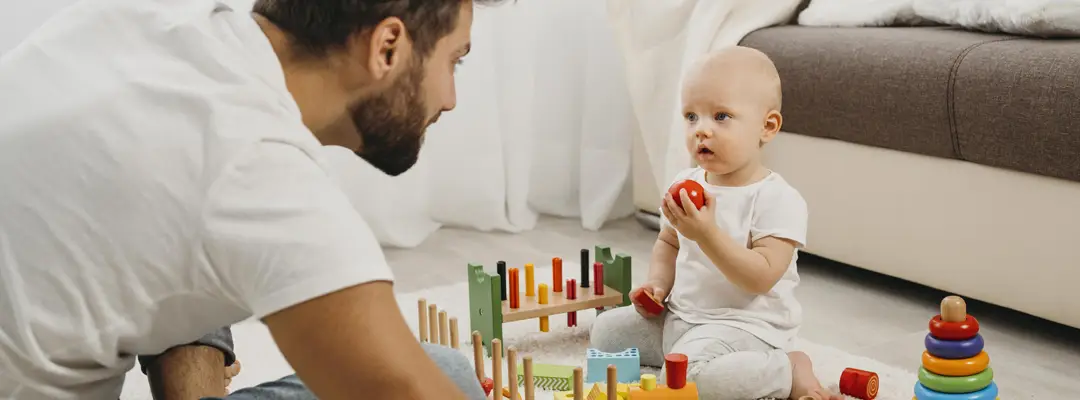Building Babies Brains Through Play
- Published on:
- Last update: 09 October 2023

Did you know that the most important interaction you can have with your child is through play? Building your baby’s brain sounds a little bit intimidating so step back and take a deep breath. Parenting is much more of an art than it is a science.
Why are the early years of a child’s life so critical for brain development?
The early years are important because the experiences young children have and the relationships they have with the important people in their lives literally shape the development of their brain. And that early foundation affects all the learning and behavior and physical and mental health that follows through a lifetime. It’s impossible to overestimate how important the early years are.
What is the most important thing a parent can do to support brain development?
The most important thing that any parent can do to support the development, particularly the brain development of a young child, is to get to know that young child, to be able to read that child’s cues and to be able to engage in what we call “serve and return” interaction.

What is ‘serve and return’ and what does it look like?
Serve and return is just like play.
The reason why ‘serve and return’ accurately describes what’s important about the interaction is that it goes in both directions. A baby serves a smile, a coo, a babble, a gesture, and the parent or other adult caring for that child returns a response that is connecting to what the baby did. Baby makes a sound; you make the same sound back. A baby points to something; you look at that and point at yourself. That’s the key. It goes both ways. The baby can start it. The parent can start it. The key is how you respond.
Serve and return is not necessarily something that works the first time you try it. But the more you practice it actually gets easier.
How is ‘serve and return’ related to play between parent and child?
For very young children, all important learning takes place within the context of play. Play is exploration. Play is trying things. Play is trying to develop a sense of mastery of the world. A lot of that is done by providing an environment that is safe and opportunities for learning.
A lot of play and interaction between parents and young children is in the ‘serve and return’ category. Some play is solitary by the child himself or herself.

How would you advise a parent on how to do ‘serve and return’ in a playful way?
Start by making the idea of ‘serve and return’ to be something that is easy, friendly and relaxing. Play can occur when you are feeding a child, when you are changing the child’s clothes or it can also be when you are bathing a child. All of those are opportunities for playful interaction and learning between adults and children.
Share this post:

